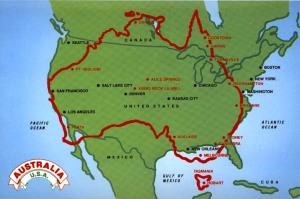CR282 #3 Blogging
Topic 5: Time in Persia
Studying the Empire within the Ancient
World provides the opportunity to learn from previous ‘empires’ and their
framing stories (stories that reflect the society/time through the
individual/empire/community). In Brueggemann’s chapter ‘Doin’ Time in Persia’
in his book ‘Out of Babylon’ he addresses the mind sets and framing stories of
various characters within the Persian empire and challenges their extent of
accommodation.
Accommodation is the extent to which one
changes themselves (or in these cases their heritage and belief e.g. being of
Jewish decent) and affects their ‘empire’. To be radical and challenging or
just doing your own business and slipping by unnoticed. In Brueggemann’s book
he mentions four different characters who all lived within the Persian Empire
and who all ‘accommodated’ to living there in varying extents. While Joseph
completely accommodated to the ‘empire’ he lost his identity and within a
couple hundred years his people were slaves to the Egyptians (Brueggemann,
2010). On the other hand there are characters like Ezra and Nehemiah who
accommodated enough to not cause trouble but could still manipulate the empire
to get supplies and resources (Brueggemann, 2010). Neither one of these are good, completely
losing your identity and cultural heritage or just doing enough or not enough
to just slip past without bothering anything or anyone. The best character to
be like is Daniel, he showed respect for the Persian Empire but did not
hesitate to stand for what he believed in and for that he was given great power
and responsibility (Brueggemann, 2010).
Each of these stories and characters
reflect a framing story or the mindset of an empire. The honest truth is that
every empire will come to ruin and fall, but it is the mindset of the empire
that affects its strength and its duration of power. Jerusalem (the holy city
to the Jews) was being directly affected by the powerful influence of the
Persian Empire and its mind set and framing story.

(Bible History, 2013).
When looking back at empires’ mindsets and
framing stories we can see the issues and problems that are being ignored and
neglected, we can predict that the empire will fall and the reasons for it.
Mindsets are important; they predict the future of a nation. In as much as
Jerusalem was affected by the Persian mindset and framing story so are we in
Australia affected and developed according to the mindset and framing story of
America.

(Grant, 2013).
In as much as Persia influenced Jerusalem
and the surrounding cities, so America influences Australia. As Australians we
adopt American mindsets and framing stories. As Americans struggles with
Globalisation so do we as Australians.
When we look at the Persian Empire we can
see the issues coming to rise that will break Persia as a nation, the mindsets
of the individuals hold the power of the empire/nation. The Persian Empire
ignored the issues in the mindsets of its people and fell to ruin, we as
Australians can learn from previous empires mistakes and identify our current
mindsets and the issues that we ignore because of them. In this way we as a
nation can learn from the empire’s mistakes and fight globalisation and the
preconceived mindsets we as individuals have about it.
Identifying mindsets as shown in the
history of empires and educating and informing ourselves and others will help
us to overcome Globalisation and give us hope of a sustainable future. “The Sustainability
priority is futures-oriented, focusing on protecting environments and creating
a more ecologically and socially just world through informed action” (ACARA,
2011).
In Genesis 2:15 God gave man the
responsibility to care for and take care of this world. “The Lord God took the
man and put him in the Garden of Eden to work it and take care of it” (Bible
Gateway, 2011, Genesis 2:15).
Thus it is our responsibility to take care
of and sustain this world that we have been given. It is up to us to identify
the mindset of our nation and make a change, to stop Globalisation and create a
sustainable future for generations of tomorrow.
References
ACARA. (2011).
Cross curriculum priorities. Retrieved 30th October 2013 from http://www.acara.edu.au/curriculum/cross_curriculum_priorities.html.
Bible Gateway.
(2011). New International Version. Retrieved 30th October 2013.
Bible History.
(2010). Map of the Persian Empire
(550-486 B.C.). Retrieved 31st October 2013 from http://www.bible-history.com/maps/maps/map_persian_empire.html.
Brueggemann, W.
(2010). Out of Babylon. Nashville:
Abingdon Press.
Grant, P. (2013). The size of Australia vs. the USA.
Retrieved 31st October 2013 from http://petergrantfineart.wordpress.com/2010/06/21/the-size-of-australia-vs-usa/.
No comments:
Post a Comment